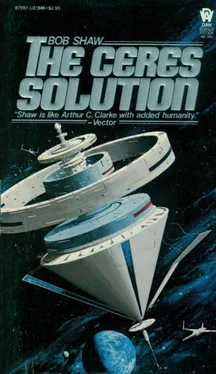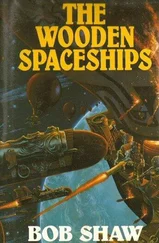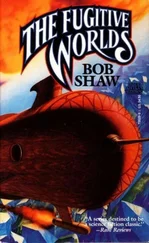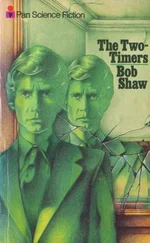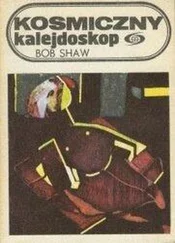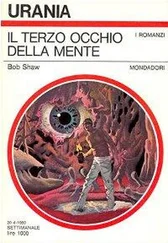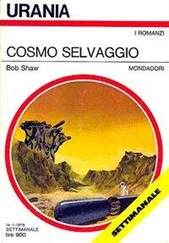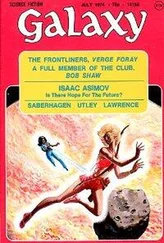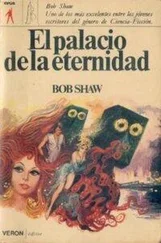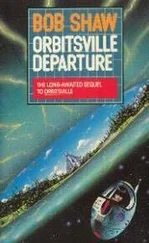On reaching the cover of the trees she kicked some compacted snow off her boots, and—already sensing the other-worldliness, the connectedness of the place—made towards the hidden clearing. Rehearsing the address of Station 23 in her mind, she skirted a clump of undergrowth, went to step down into the invisible aura of the node itself and jarred to a halt, a shocked whimper escaping her lips.
Encountering another person in the clearing was a rare and surprising event—it had happened only once in more than two decades—but its strangeness was compounded by the intruder’s appearance.
Sitting in an electrically-propelled wheelchair was a frail, hollow-shouldered man, possibly in his early thirties, whose lop-sided face had been eroded by illness and pain. Here was a man, Gretana knew immediately, whose lifespan would be only a tiny fraction of her own, short even by Terran standards, but who knew more about suffering than she could ever comprehend. A reddish plaid rug lay on the ground beside his chair and his concave chest was exposed to the hostile chill of the winter air. The man’s face was mottled with blue, and small fast-fading feathers of condensation testified to the weakness and rapidity of his breathing.
He’s dying , she thought, chastened, prey to all the lacerating emotions she thought she had learned to suppress. He came here to die!
Overwhelmed by a combination of uncertainty and pity, she held herself as still as one of the surrounding trees while her mind wrestled with a terrible suspicion. There was something about the’s tortured face, something about the set of his chin and the incongruous smoothness of his brow…
Is this the same little boy? The one who fled on his crutches? Gretana felt a coldness which had nothing to do with the environment. Is this what twenty years of illness…?
The answer to her questions was both unexpected and dramatic. Under her petrified gaze, the man in the wheelchair raised his right hand and brought it downwards through the air in what was undoubtedly an attempt to reproduce a Mollanian transfer symbol.
She understood at once that the crippled boy and man were the same person, and that at some time in the past he had seen her or some other Mollanian agent depart for Station 23. The event would have seemed like magic to the Terran, especially as a child, and the impression it must have made could be gauged from the fact that he had chosen to spend the last minutes of his life here. Inspired by a last guttering of hope, he had tried to set foot on the same invisible road. Predictably, his gesture had brought no result. The whole principle of sympathetic congruency was dependent on a number of factors—an understanding of the basic philosophy, a disciplined effort of will, an awareness of the mathematical relationship between primary location and the target node.
None of these had been available to the man in the wheelchair, however, and with the failure of his untutored attempt to skord he appeared to have given up his hold on life. He had lowered his head, folded his hands in his lap, and the movements of his chest were fast becoming imperceptible. His very submissiveness—like that of a small animal curling up to die—magnified Gretana’s pain. She pressed the heels of both hands to her temples. Something had to be done, but nothing could be done. To try summoning medical aid would only…
“Over here, Ed,” a man shouted from somewhere nearby. “She’s in here.”
Gretana spun round, dry-mouthed, and through the trees glimpsed a tall, heavy-set man in the crimson cap of a hunter. He was carrying a shotgun and beckoning to a companion. She reached the centre of the clearing without being conscious of any physical effort or lapse of time. For a second she feared that the distractions of the situation would scramble her thoughts, but her mind reacted positively, assembling the elements of the transfer equation with special rapidity.
She lifted her right hand, poised herself for departure, and in that precise instant the man in the wheelchair raised his head, opened his eyes. She saw his look of disbelief merge into wonderment, then he was reaching towards her with both hands in a kind of supplication. There was a splintering of twigs, a rattling of undergrowth near the edge of the clearing.
Unable to check herself, driven by a complex emotional reaction, Gretana took one of the outstretched hands, and at the same time used her right hand to sculpt a unique quintic mnemo-curve in the cold air.
The transfer took place.
It was night on 82 Eridani I, and Field Station 23 looked exactly as it had done when Gretana first saw it. The buildings on the edge of the circular plaza were throwing up a wash of light which over-painted all but the brightest stars, and there was the same sense of inner emptiness which told her that no planets swam in that region of space. There was, however, one vast difference in the circumstances of her arrival.
Beside her, at the centre of the radial mosaic, the crippled Terran was struggling into an upright attitude in his wheelchair.
Propping himself up on his arms, he looked at her and at the backdrop of angular luminosities. For a moment his asymmetrical features registered a blend of surprise and jubilation, and then—an abrupt reminder of why she had yielded to instinct—he slumped back unconscious, head lolling on to his chest. His hands slid from the chair’s armrests to swing limply beside the wheels.
“No, no ,” Gretana breathed. She caught the handgrips at the back of the chair, turned it and began pushing it towards the station’s reception chamber. Lines of tesserae pulsed amber and white beneath her feet as she overcame the chair’s inertia and began to pick up speed. There was a movement of silhouettes ahead, accompanied by shouts and the sound of running feet, then Ichmo tye Railt was beside her and using his superior strength to drag the chair to a halt.
“What do you think you’re doing?” Ichmo’s ill-proportioned face was taut with anger and shock. “You’ve got to go back.”
Gretana shook her head. “I can’t do that.”
“You haven’t any choice in the matter,” he shouted, overwhelming her with the sheer volume of sound as he pushed both her and the wheelchair back towards the centre of the plaza. “You’re going right now.”
“There were Terrans near the node. They might have seen me leave.”
“You’ll just have to wait till they leave.”
“That could take an hour,” Gretana insisted. “This man will be dead by then—and you’ll be responsible.”
“ I’ll be…! ” Ichmo released his hold and stepped back from Gretana, looking bemused. “That’s the most unfair thing I’ve ever heard. You’re pulling me down with you.”
“You’ve got to decide your priorities,” she said coldly, two decades on Earth having accustomed her to verbal in-fighting. “Is your career more important than the life of another human being?”
“This is the first time anybody has done this.” Ichmo looked at the inert figure in the wheelchair and averted his gaze, but not before Gretana had seen the flicker of revulsion in his eyes. “Why are you here? Your next deposition isn’t due for some time.”
“I have to make a special report.”
“If it’s about the space colony business, we already have a…”
“I don’t care what you have,” Gretana snapped. “This man needs attention right now, and I’m going to see that he gets it.” She pushed the wheelchair past Ichmo, knowing as she did so that she was acting out of character, compensating for the uncertainties and alarms that were growing within her. It was quite possible that in the entire history of the Bureau no observer had ever broken the rules so flagrantly and spectacularly as she had just done, and she had no idea what the consequences would be. In particular, she could not anticipate Vekrynn’s reactions. All she could do for the moment was try to avert the final tragedy for the man in the wheelchair.
Читать дальше
